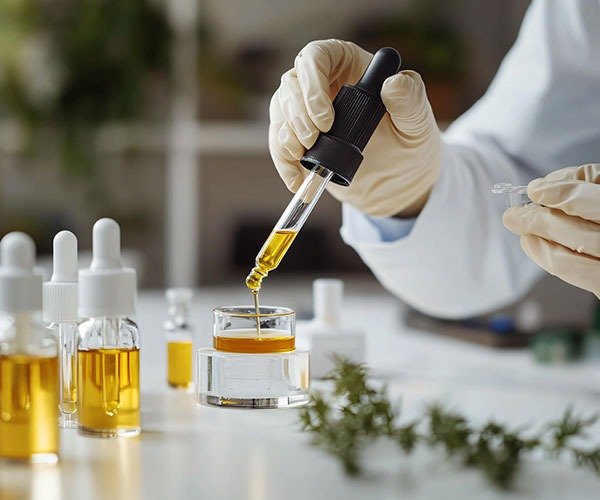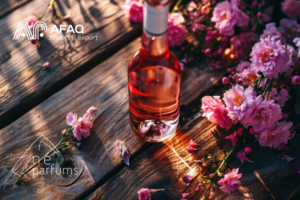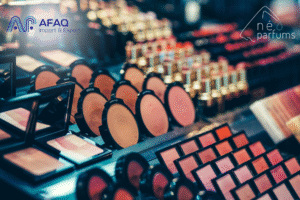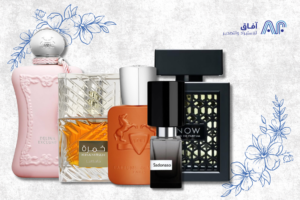Essential oils quality control is a critical aspect of ensuring the purity, safety, and efficacy of these highly concentrated plant extracts. By implementing rigorous testing procedures, manufacturers can guarantee that their products meet the highest standards and deliver the intended benefits.
In this blog post, we will delve into the importance of quality control in essential oil production. We will explore the various testing methods used to assess the chemical composition, authenticity, and safety of these oils. Additionally, we will discuss the key factors that contribute to the overall quality of essential oils, including raw material sourcing, extraction techniques, and storage conditions.
What is the role of Quality control testing in essential oil and pure oil manufacturing?
Afaq Fragrance is very selective when it comes to choosing its suppliers, and one of the main aspects that Afaq considers is the fragrance Oil Quality Control which guarantees the safety of the fragrance oils used on skin and their adherence to pertinent regulations. Quality control is important when manufacturing essential oils to ensure that the output of the product is harmless, pure, and reliable. Essential oils are highly concentrated plants used in aromatherapy, cosmetics, and wellness products. Strict quality control procedures by Afaq are implemented in the development stage of each essential oil to maintain its therapeutic quality and safety.
The process of quality control plays a huge role in the process of manufacturing essential oils. This process ensures the purity, authenticity, and safety of the highly concentrated oils. The quality control measures by Afaq ensure that products maintain the healing effects. Manufacturers must continually adhere to extensive quality control measures to ensure that the product meets the quality standard expectations. The same quality control and tests are also applied when producing pure oils. These tests ensure that the pure essential oils are free from any impurities.
The Importance of Quality Control in Essential Oils:
The process of quality control is extremely significant in manufacturing essential oils. It ensures that the product meets the standards of purity, effectiveness, and uniformity. This procedure is a process that includes many different stages, from sourcing the raw materials to the final finished product. Fragrance Oil Quality Control ensures that the manufacturing process complies with the safety regulations. It also facilitates safety reviews for the fragrance ingredients and establishes standards for fragrance manufacturers.
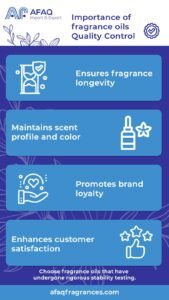
The following steps highlight the crucial steps of Quality Control:
Afaq’s standard on the Purity of its products
The quality control provides an insight to ensure that the products are not chemically contaminated, pure, or undiluted. This is crucial since any contaminants could undermine the oil’s safety and effectiveness.
Verification on the Fragrance’s Validity
This is an important step to ensure that the quality of oils is extremely high. This is because counterfeiting groups directly target essential oils. This helps make sure the supplies distributed are ensured, effective, and risk-free.
Afaq’s Supplies chemical compositions
The quality control process guarantees that oil’s chemical profiles are consistent throughout the testing process.
Afaq’s Product Safety:
Safety is an important factor in supplying essential oils. This test confirms the possible allergy symptoms, potential dangers, or toxins ingredients in the product. This helps prevent any possible dangerous encounters from occurring.
Afraq ensures that the quality control process that is performed is supervised, updated and reviewed according to the quality standards and expectations policy.
The fundamental steps of Quality Control of essential oils:
Selection of Material used for Fragrance essential oils
The finished product’s quality highly depends on the selection of the materials. The plants require ideal growth conditions, free of pesticides and pollutants.
Extraction Methods
The method of oil extraction influences the essential oil’s quality. Producers must choose the techniques and equipment to maintain the validity of the oil.
Extensive lab tests
Essential oils must go under an extensive laboratory test that includes the processes of gas chromatography and mass spectrometry to determine their chemical composition. This helps confirm that the product has no impurities.
Quality Assurance:
Manufacturers implement quality assurance tests to ensure the level and safety of the products. This includes package testing , reviewing documents, and the comparison against the industry norms.
Packaging and Storage Standards:
Ensuring proper packaging and storage is essential to avoid contamination and deterioration of essential oils. The quality control process encompasses these stages to uphold the integrity of the product. The packaged supplies imported by Afaq are stored in safe conditions that ensure that the products stay fresh.
Regulatory Compliance
Essential oil suppliers and manufacturers are required to follow the regulatory guidelines and standards established by entities like the International Organization for Standardization (ISO) and Good Manufacturing Practices (GMP). Adhering to these regulations guarantees that the products fulfill the designated quality and safety requirements\
Quality Control and Testing for Fragrance Oils:
Quality control encompasses the evaluation of units to ascertain their compliance with the specifications set for the final product. The objective of this testing is to identify any necessary corrective measures within the manufacturing process. Effective quality control enables companies to satisfy consumer expectations for superior products. This process is performed at the beginning stage of every step of the manufacturing process. The process involves sourcing raw materials, extracting samples from the production line, and conducting tests on the final product. The fundamental goal of the quality control process is to recognize and modify any variations from the predetermined quality standards. This process includes the assessment of products or services at multiple stages of production or delivery to guarantee each product distributed fulfills the quality criteria.
Afaq quality and control testing meets the correct measures of the manufacturing process. The tests done by Afaq are heavily monitored, supervised by manufacturers’ experts.
Fragrance Oil Analytical Techniques for Fragrance Oil Quality Control:
Fragrance Oil Quality Control follows a testing method analysis that is combined and updated, paying particular attention to the ingredients connected to fragrances that may cause allergies. The testing method analysis, which is a part of the fragrance oil quality control includes the following:
Testing Method 1: Gas Chromatography (GC):
A technique that analyzes each essential oil component separately. The oil is evaporated and passed through a column where the compounds separate according to the chemical properties. These compounds demonstrate the chemical composition and purity of the product.
Testing Method 2: Mass spectrometry
Mass spectrometry and gas chromatography analyze the elements in fragrances. It is a tool that determines the strength of essential oils.
Testing Method 3: Fourier Transform Infrared Spectroscopy (FTIR):
FTIR is a method that verifies the legitimacy of essential oils by comparing the oil’s signatures to the established compounds
Testing Method 4: Organoleptic Testing
This method relies on human senses to assess the qualities of essential oils through the process of examination. Fragrance experts assess the scent, appearance, texture, and other sensory qualities of the oil. This assessment provides insight on the overall quality of the essential oil.
Afaq Fragrance Oil Quality Assurance:
Key aspects and parameters for fragrance quality control presented by Afaq:
Key Quality Aspect 1: Raw Materials
Fragrances are made up of natural ingredients such as essential oils, fragrant elements, chemicals, stabilizers, and enhancers. The quality of the final product is significantly influenced by the way these raw materials are stored upon their arrival at the manufacturing facilities. These raw materials are extremely sensitive to any temperature changes; therefore, it is important to store these materials in extremely heated, cold, or sunlight. These materials must be prevented from any direct sunlight, moisture, and potential contact with any microorganisms.
Once the manufacturer receives these raw materials, they must be sampled and tested immediately to ensure that these products would meet the standard expectations.
Key Quality Aspect 2: Labeling Requirements
Labeling is a legal requirement to ensure the product’s merchant, quality, and safety aspects of the essential oil. Any fragrance suppliers must ensure that all the business information is printed on each supply of essential oils. The following information that should be included is the company’s name and address, the used date, and the correct batch number. Before printing any labels, it is important to verify the labeling on the packaging. Then labels are reviewed one more time to provide extra reassurance. When conducting on-site quality checks, inspectors will analyze the finished products to ensure that the packaging and labeling match the approved files.
Key Quality Aspect 3: Fragrance bottles
Perfume bottles are presented in various shapes and sizes according to the brand’s representation. Perfume bottles are monitored and stored in optimal conditions. This includes sunlight and humidity. Furthermore, pallets or racks are required to prevent bottles possibly getting damaged. The suppliers must keep track of the glass storage inventory. During the quality control stage, all the perfume bottles should not have any scratches, marks, or stains. The fragrances must be tightly secured and sealed during this process to avoid any leaks from happening.
Key Quality Aspect 4: Production
Fragrance distributors and suppliers should have written instructions that oversee the manufacturing process. These documents should highlight the following: equipment maintenance, sanitation protocols, material approvals, sampling production and control processes, returned goods, laboratory tests, and complaints. The fragrance suppliers must be skilled enough to meet these rigorous standards.
Fragrance Oil Sensory Evaluation
The fragrance oil sensory evaluation is a strategy that estimates, investigates, and interprets human reactions to food and materials by using the five senses. The fragrances assessment verifies the effectiveness of a product. The fragrance market products such as perfumes, skincare products, household products, and oral care products.
Fragrance Oil Compliance Testing
The test of fragrance compliance falls under the IFRA guidelines. The IFRA is a set of regulations that highlight the safe use of perfumes. These principles are based on scientific studies and risk assessments that are conducted by experts. These guidelines are applied to personal fragrance oils, home fragence oils, and perfume oils for products. The types of IFRA standards include prohibited, restricted, and specification standards.
Fragrance Oil Stability Testing Techniques:
Fragrance oil stability tests are an essential process in developing perfumes and scented products. The test evaluates the performance of a fragrance under different conditions to determine its quality, scent profile, color, and effectiveness throughout its shelf life. The fragrance oil stability test is an important step to ensure the longevity of a product. The stability test influences the customers’ satisfaction and the brand’s image and identity. A fragrance that continues to experience changes over time could affect the brand’s reputation. The fragrance oil stability test helps ensure superior product quality, resulting in appealing fragrances that are maintained over time. This test helps promote brand loyalty. This test is related to the main idea of fragrance oil quality control, which determines how fragrances perform under certain conditions.
1: Accelerated Stability Testing: This strategy involves exposing the perfume to extremely high temperatures to simulate development over a shorter period. It determines how well a perfume will last under different weather conditions.
2: Light Exposure Testing: The fragrance exposed to light sources determines how the light exposure will impact the product. This test demonstrates how sunlight or indoor lighting can change the fragrance properties.
3: Freeze-Thaw Testing: The products are frozen and cooled down to room temperature. It evaluates how temperature changes impact the fragrances, especially the products clarity and viscosity.
4: Real-Time Stability Testing: The product is kept under normal conditions for a long time. This method helps determine how fragrances work in normal storage conditions.
The purpose of the fragrance oil stability test:
The purpose of the fragrance oil stability test is to examine the overall quality of the fragrance before it is displayed on the market. This analysis is related to fragrance oil quality control in terms of the fact that products must go through strict and accurate tests before the perfume is packaged and delivered.
Conclusion:
Quality control is a cornerstone of ensuring the safety, efficacy, and authenticity of essential oils. By employing rigorous testing methods, manufacturers can guarantee that their products meet the highest standards and deliver the intended benefits.
Afaq, a leading importer of fragrance oils, prioritizes quality control to ensure the safety and efficacy of its products. By partnering with reputable suppliers who adhere to stringent quality control standards, Afaq is committed to providing high-quality essential oils that meet the needs and expectations of its customers.
From laboratory analysis to sensory evaluation, comprehensive quality control ensures the purity, potency, and consistency of essential oils. By understanding the importance of these measures, consumers can make informed choices and reap the full benefits of these valuable natural resources.

